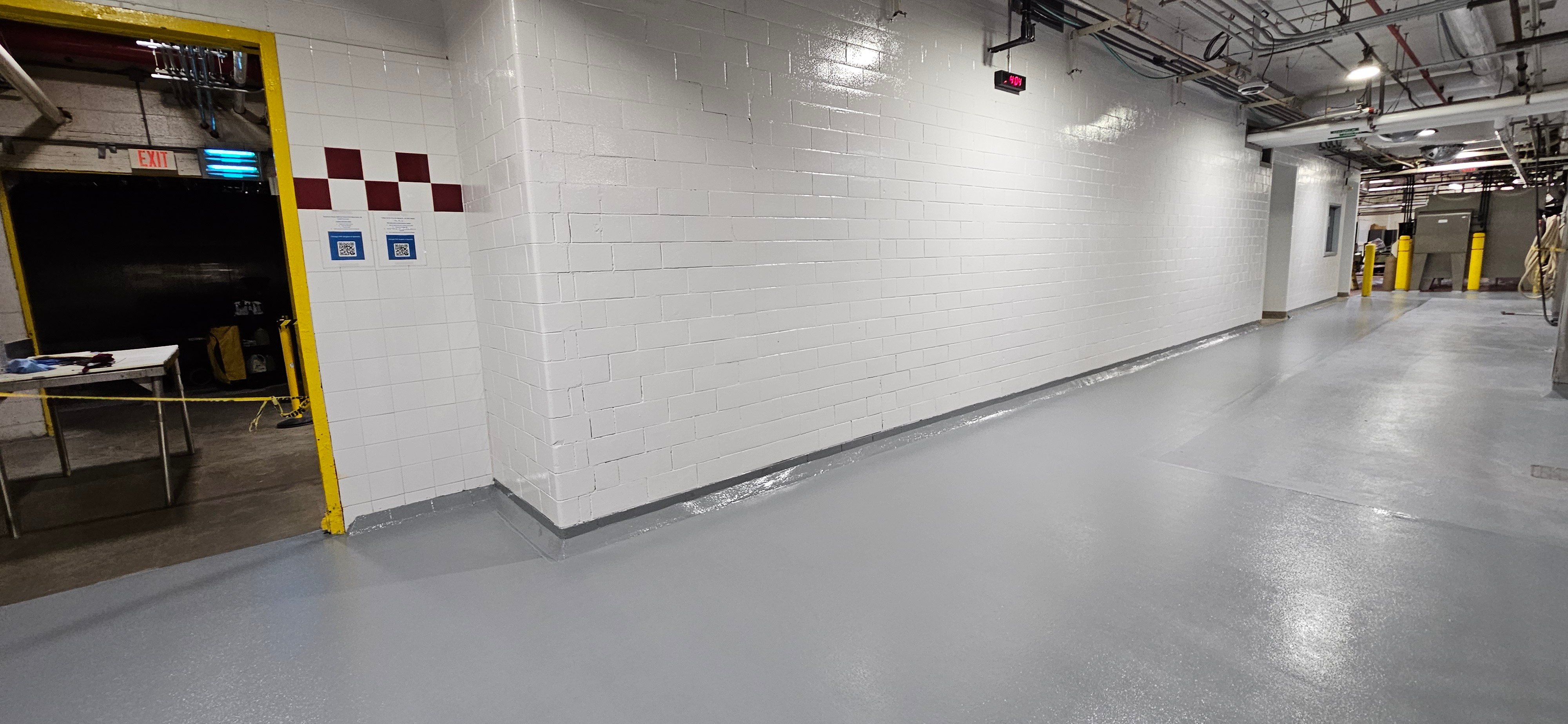Why Polished Concrete Is Gaining Ground in Auto Showrooms
September 26th, 2025
3 min read
By Tom Dassie

Auto showrooms are designed to impress. From the moment customers walk through the doors, everything about the space—lighting, layout, and flooring—contributes to the overall experience. The floor, in particular, serves as both a backdrop and a stage for the vehicles on display. It must look sleek and modern while standing up to heavy foot traffic, rolling loads, and constant cleaning.
That’s where polished concrete floors are becoming a standout choice. At CustomCrete, we’ve seen firsthand how dealerships and showrooms across the Chicago area are making the switch to polished concrete for its ability to combine aesthetics with durability. This blog explores why polished concrete has gained traction in auto showrooms and why it may be the right choice for your facility.
The Aesthetic Advantage of Polished Concrete Floors
Polished concrete delivers a clean, modern, and professional look that enhances the visual appeal of a showroom. Its reflective surface amplifies both natural and artificial lighting, making vehicles appear brighter and more striking. Unlike tile or vinyl, polished concrete doesn’t distract from the cars—it frames them with a sleek, seamless backdrop that elevates their presentation.
Beyond appearance, polished concrete can be customized with varying levels of gloss, stains, or decorative aggregates, allowing showrooms to tailor their look to match their brand identity. Whether aiming for high-gloss sophistication or a matte industrial style, polished concrete adapts to fit the space.
Durability That Matches the Demands of Auto Showrooms
A showroom floor takes more abuse than meets the eye. Heavy vehicles roll in and out, customers walk across the space daily, and frequent cleaning is required to maintain a spotless environment. Traditional flooring materials often struggle under this type of wear, showing scratches, stains, or chips over time.
Polished concrete floors, however, are designed to last. Once densified and sealed, the surface becomes extremely resistant to abrasion, impacts, and tire marks. Unlike tile grout or vinyl seams, there are no weak points where dirt or damage can accumulate. The result is a floor that looks pristine, even with continuous use.
Low Maintenance, High Payoff
Another reason polished concrete is gaining ground in auto showrooms is its low maintenance requirements. Unlike waxed tile or sealed stone, polished concrete doesn’t require frequent stripping, waxing, or recoating. A simple cleaning routine of dust mopping and occasional wet mopping with a pH-neutral cleaner is usually sufficient.
This reduced maintenance not only saves time and labor but also lowers long-term costs. For auto dealerships balancing both aesthetics and budgets, polished concrete provides an attractive return on investment.
Safety and Practical Considerations
Showrooms need to be both beautiful and safe. Polished concrete naturally resists dusting—an issue with untreated slabs—and helps maintain better air quality in the showroom. Its reflective qualities also improve visibility, creating a brighter and safer environment for both employees and customers.
Cost Considerations of Polished Concrete Floors
Polished concrete falls into the mid-to-high price range compared to other flooring systems, with costs influenced by slab condition, desired level of polish, and customization. While the initial investment may be higher than traditional flooring materials, the savings on long-term maintenance and replacements make it a cost-effective choice over the life of the showroom. Although when compared to tile installation, polished concrete flooring has the lower cost.
Why Auto Showrooms Are Making the Switch
The growing popularity of polished concrete floors in auto showrooms comes down to their balance of aesthetics, durability, and cost-effectiveness. They create an environment that highlights vehicles while withstanding the practical demands of a busy dealership. With fewer maintenance headaches and a polished, professional appearance, more showroom managers are making polished concrete their go-to flooring choice.
FAQs About Polished Concrete in Auto Showrooms
- How often do polished concrete floors need maintenance in a showroom?
With proper cleaning—dust mopping daily and wet mopping weekly with a neutral cleaner—polished concrete floors can retain their shine for years. Periodic resealing or re-polishing may be needed every few years depending on traffic levels, but routine upkeep is minimal compared to other flooring.
- Are polished concrete floors safe for customers, especially in wet weather?
Yes. While polished concrete can become slippery when wet, contractors can apply anti-slip treatments or add traction-enhancing solutions during the finishing process. Many dealerships also use entry mats to minimize moisture brought in by customers.
- Can polished concrete be customized to match a showroom’s brand image?
Absolutely. Polished concrete can be finished in a range of gloss levels, from matte to high-shine, and can incorporate stains, dyes, or decorative aggregates. This makes it easy for showrooms to align the floor’s appearance with their brand identity and overall design goals.
Final Thoughts
Polished concrete floors are more than just a design trend—they’re a practical solution for showrooms that want to combine beauty, durability, and long-term value. If your dealership is considering a flooring upgrade, polished concrete offers the balance of performance and elegance needed to showcase vehicles at their best.
👉 Want to take the next step in evaluating your options? Request a quote from CustomCrete today.
Topics:











.jpg?width=7008&height=4672&name=CC101560%20(1).jpg)












